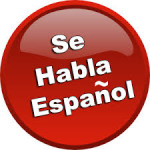March 16, 2025 | Posted in Uncategorized | By Avenue15
In the ever-evolving realm of education and learning, where details streams abundantly and accessibility to knowledge is just a click away, student-driven encyclopedias are emerging as a dynamic device in the learning procedure.

These platforms not just offer students with a database of details however additionally encourage them to add, edit, and curate content, fostering a joint and interactive discovering environment.
As academic paradigms shift in the direction of even more participatory and comprehensive versions, the principle of student-driven encyclopedias symbolizes this transformation. These platforms empower pupils to come to be energetic individuals in understanding production, linking the space between standard textbook knowing and modern-day digital sources.
The Principle of Student-Driven Encyclopedias
Student-driven encyclopedias are digital systems where trainees collectively gather, verify, and share info on a vast array of subjects. Unlike standard encyclopedias, which are usually composed by professionals, these platforms take advantage of the collective initiatives of trainees to create an extensive body of expertise.

At their core, student-driven encyclopedias are designed to grow important thinking, research abilities, and electronic proficiency among students. By participating in the procedure of web content creation, students find out to navigate and evaluate information critically, skills that are important in today’s information-rich culture.
In addition, these platforms work as a space for trainees to explore their interests and share their knowledge. This democratic approach to expertise production ensures that a diverse series of point of views and voices are stood for, enhancing the finding out experience for all participants.
- Pupils gain hands-on experience in study and material creation.
- Encourages collaboration and peer interaction.
- Promotes a deeper understanding of topic.
- Fosters inclusivity and diversity in knowledge representation.
In essence, student-driven encyclopedias change trainees from easy recipients of info into energetic contributors, instilling a sense of possession and obligation in their educational trip.
Benefits of Student-Driven Encyclopedias
Among the principal advantages of student-driven encyclopedias is the development of crucial 21st-century abilities. As trainees engage in the procedure of web content creation, they hone their critical thinking, electronic proficiency, and interaction abilities, every one of which are essential in today’s interconnected globe.
Additionally, these platforms encourage a collective learning environment, where pupils can collaborate to validate details, debate various point of views, and co-edit posts. This peer-to-peer interaction not just enhances learning outcomes however likewise promotes a feeling of community and mutual respect among trainees.
Additionally, student-driven encyclopedias provide a system for showcasing student work. As pupils contribute to the encyclopedia, they build a profile of their research study and writing, which can be very useful for more scholastic and specialist pursuits.
Challenges and Limitations
In spite of the various benefits, student-driven encyclopedias likewise encounter specific obstacles. Making certain the precision and reliability of info is paramount, as these platforms depend on contributions from students who might not yet possess expert-level knowledge.
- Keeping content quality and accuracy.
- Providing adequate supervision and guidance.
- Guaranteeing fair gain access to and inclusivity.
To mitigate these obstacles, several student-driven encyclopedias carry out a system of checks and equilibriums, where material is reviewed by instructors or specialists prior to publication. This makes sure that the info offered is both exact and reliable, supporting the honesty of the system.
The Future of Student-Driven Encyclopedias
As innovation continues to breakthrough and the landscape of education evolves, the capacity for student-driven encyclopedias is large. These systems have the capability to not just complement standard academic resources however likewise redefine the method knowledge is gotten and shared.
In the future, we may see student-driven encyclopedias integrating more advanced modern technologies such as expert system and machine learning to boost material curation and personalization. Additionally, they may expand beyond textual info to consist of multimedia content, providing a much more immersive discovering experience.
Equipping the Next Generation
Student-driven encyclopedias hold the guarantee of empowering the future generation of students. By putting students at the helm of expertise development, these systems motivate long-lasting discovering, interest, and intellectual independence.
In conclusion, as educational systems continue to innovate, student-driven encyclopedias stand as a testament to the power of partnership and the value of pupil company in the knowing procedure. By embracing these platforms, we unlock to a more inclusive, q&a website for detailed explanations engaging, and vibrant academic experience for all.


